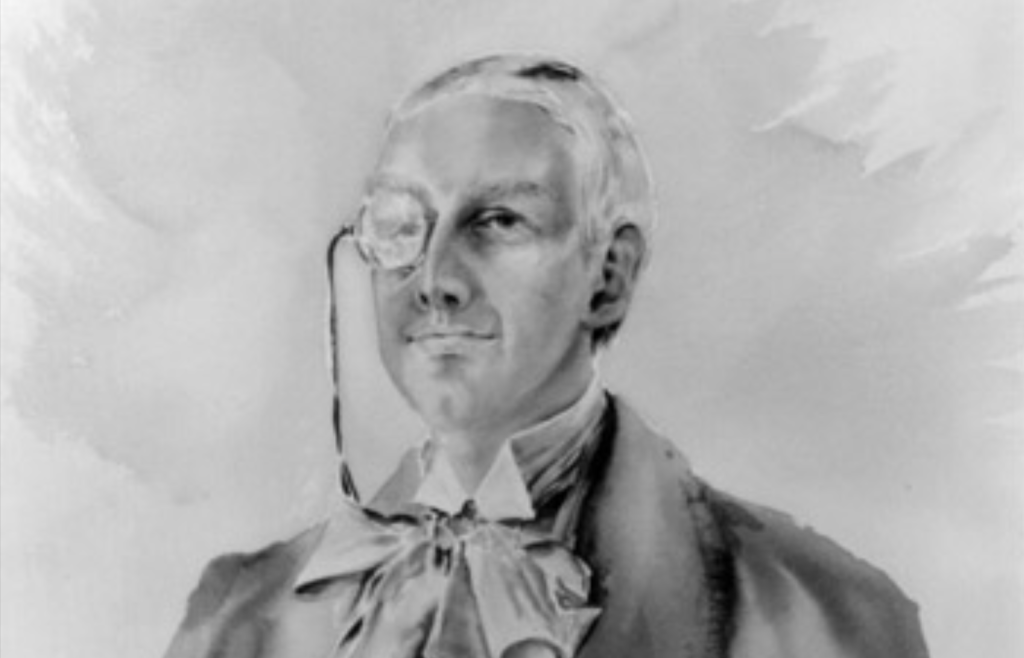

The golden age of detective fiction was a long time ago
This year Lord Peter Wimsey, the aristocratic sleuth, turns 100. Or possibly 133. He entered the world as the literary creation of Dorothy L. Sayers in Whose Body? (1923) but—as when God made Adam—he arrived full-grown. Sayers reveals that Wimsey was born in 1890, making him thirty-three in 1923.
I was delighted to read several internet sources that insisted that according to Jewish tradition Adam was created to be biologically thirty-three. Alas, the scholars I tried to get to confirm this flatly denied it. Still, whoever is putting this claim about presumably imagines that thirty-three is the ideal age of virile maturity. Certainly that is how Sayers saw Wimsey.
But never mind about 133, because it turns out that even 100 years is a long time ago. To read Whose Body? today is to return to a world that has vanished as thoroughly as the missing financier at the heart of this story.
On an obvious level, the telephone was still a novelty. The fact that something important is happening is signaled by saying that one needs to put in a “trunk-call” (not international, but still long-distance), and then there would be a pesky operator on the line itching to cut you off before you had said your piece. Sayers reminds us that she was raised a Victorian by her elliptical way of referring to vice. She has a deft way of writing so that a reader who already knows what a prostitute or a brothel is can infer that they are being told about one, but no one could complain that the innocent have learned of such things from her.
Sayers declared flatly that Wimsey was not a Christian. In Gaudy Night (1935) she even has Wimsey say so himself. Whose Body? opens with him pronouncing, “Oh, damn!” And one recurring point in these stories is that our hero is a man of the world who has had his share of lovers. Still, Christianity was thoroughly woven into British culture in 1923. Wimsey’s mother, the Dowager Duchess, is putting on a bazaar to help repair the roof of their parish church. Priests, bishops, and vicars pop up throughout. Wimsey, as was common in that time, often speaks in biblical quotations: “The voice is Jacob’s voice, but the hands of Esau” (Genesis 27:22); “Remember thy Creator in the days of thy youth” (Ecclesiastes 12:1); “David—his name is David—dancing before the ark of the Lord” (see 2 Samuel 6:14); “Blessed are they that have not seen and yet have believed” (John 20:29).
Sir Julian Freke is an atheistic materialist who thinks religion is a “hallucination” and that “God’s a secretion of the liver.” Yet even he has a scriptural way of speaking that for most people today would make his meaning inscrutable: “Now it’s up to me to heap coals of fire on you both.” (Believe it or not, this means to do them a kindness—see Romans 12:2.) Detective Inspector Charles Parker spends his leisure time reading “a modern commentary on the Epistle to the Galatians.” Readers are supposed to be able to assimilate effortlessly a throwaway reference to “St. Paul condescending to humour the timid mumbo-jumbo of superstitious Corinthians.” The second Wimsey novel even had a biblical allusion for its title: Clouds of Witness (1926)—see Hebrews 12:1. Returning to Whose Body?, not least surprising is the fact that when our non-Christian man-of-the-world is away from home he spends his free time by going off by himself to Evensong (the Anglican evening worship service).
Then there is race. In one rambling monologue, the phrase “got the Tarbaby in his family tree” regrettably appears. More centrally, the vanishing financier is Sir Reuben Levy. Sayers is trying to snub small minded anti-Semitism, but she is still trafficking in the stereotype of the wealthy Jew who is ruthless in money matters. Even a sympathetic character alludes to Levy as having a lot of “shekels,” and a less sympathetic one refers to him “looking like a pawnbroker.” Another uses an anti-Semitic racial slur.
Next there is class. The England of 1923 was a world in which the class divide was seen as fundamental and immutable. Sayers often made her plots go by capitalizing on this. The book opens with Wimsey having just come from the Savile Club wearing a top hat, and it only takes a few paragraphs to learn that he is the son of a duke; that he attended Eton and Balliol College, Oxford; that he is a gentleman of wealth and taste. Readers watch longingly as he sips white wine (Montrachet 1908), port (Cockburn 1868), and brandy (Napoleon 1800).
On the very first page, a loyal servant, Mervyn Bunter, is referred to as “his man.” Imagine today someone speaking in this way—as if a member of the ruling class owned a member of the lower class. Multiple plots involve Wimsey sending Bunter to elicit information among that wholly alien race, the servants.
I read the Wimsey novels for the first time in the 1990s, during which period I was also working my way through the Brother Cadfael mysteries by Ellis Peters (Edith Pargeter). There are twenty-one Cadfael books, written over the period 1977-94. Despite their being set in the twelfth century, I soon figured out that Peters had a quite modern, sentimental view of what a suitably happy ending must look like. Although written and set in the twentieth century, the Wimsey novels, by contrast, have an unflinching streak reflective of a time different from our own. A suitably happy ending for Sayers is when someone who has disgraced themselves does the decent thing and commits suicide. In a pinch, and especially if he has a soft spot for you, Wimsey will even be kind enough to tell you where you can find a revolver.
I adore stories from the golden age of detective fiction—and the Wimsey ones most of all. I read them again and again and continue to savor their enduring charms. Still, a hundred years is a long time ago. I would be glad to try the 1800 brandy, and even be up for having a cautious, curious go at the 1868 port. But not everything ages so well, and that is true of more things in these novels than just the Montrachet 1908.
Timothy Larsen teaches at Wheaton College and is an Honorary Fellow at Edinburgh University. He is the author of John Stuart Mill: A Secular Life and the editor of The Oxford Handbook of Christmas.
Image: Wikimedia Commons
I, too, am a fan of the Wimsey stories. And since I play at theology for a living, I’ll briefly comment about a couple of the religious elements in Professor Larsen’s account.
For one thing, it seems extraordinary that someone at leisure would read a Bible commentary. Yet Wimsey’s friend more than once is described as doing such. Still, it is one of the oddities of church history that certain important things have happened when people read Bible commentaries—even aloud, to each other, as in Luther’s commentary being read to the edification of John Wesley in Aldersgate Street. And I know I have recently come across another eminence likewise converted by the reading of a commentary; perhaps Professor Larsen himself can supply the name I can’t recall just now.
For another thing, the quotation of the so-called Authorised Version by educated British persons of that era is, as Professor Larsen knows better than most, simply commonplace. Indeed, only Shakespeare and the Book of Common Prayer are quoted in similar frequency by this class, not accidentally because of the nature of public school (in the English sense) education up until almost the present. (The Monty Python troupe provide relatively recent examples of such familiarity.)
And then, to close this little loop, it might be worth observing that British detective fiction is constantly plundering the KJV and BCP (as well as Shakespeare) for book titles. P. D. James comes first to mind in this wise, but others do as well.
Hail, then, to Lord Wimsey in his centennial year. Wittier than Holmes, classier than Bond, and happier than Smiley, he remains in the front rank of British investigators—not least because he was much luckier in love than most (British detectives tend to be a woebegone sort in matters of the heart), thanks to the lovely and brilliant Ms Vane….